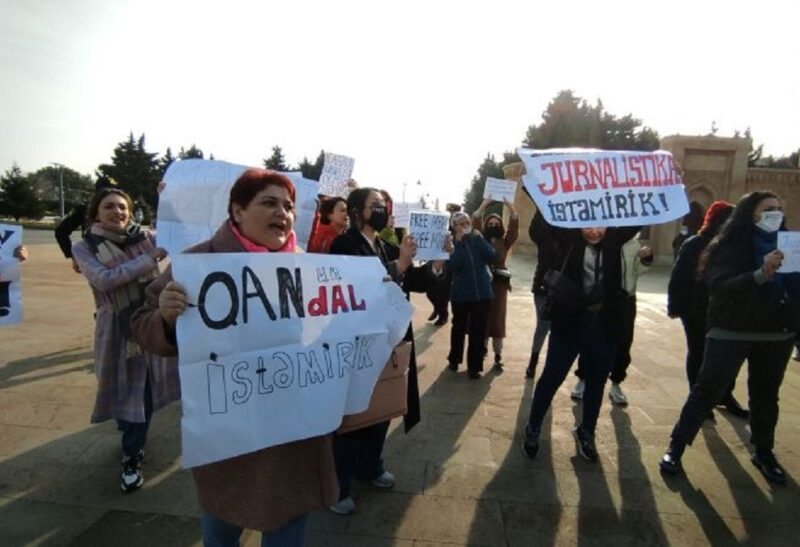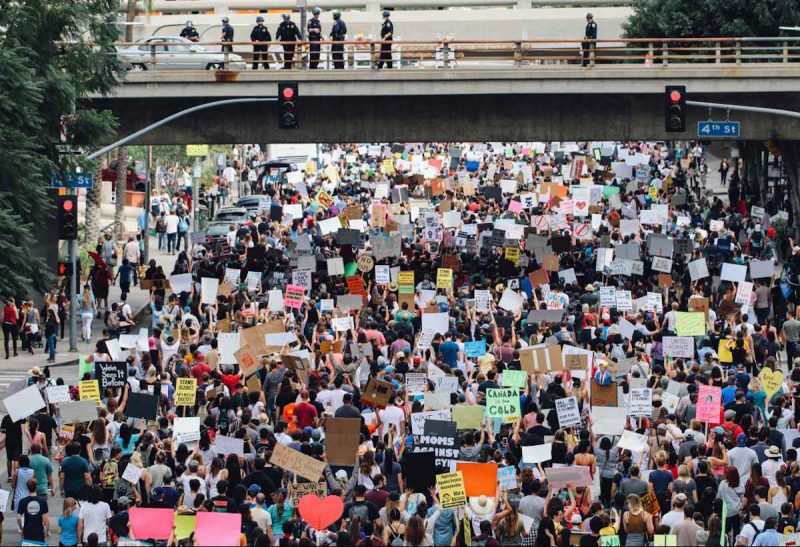Over the last several days an unfortunate escalation of violence in and around Nagorno- Karabakh, has left several dozen dead and wounded. As a tenuous
ceasefire
takes hold, we are reminded of the enduring allure of war, of the deep-seated hatred of the adversary it unleashes, of our propensity to be enamored by the technological wizardry of it all, and of the corruption and criminality that it conceals.
All this fighting, in a conflict nominally about territory, will result in each faction essentially retaining the same positions as before – the recent bout of bloodletting notwithstanding. But that will not stop each side from declaring victory; such is the logic of endless war, or what some analysts and commentators have repeatedly and mistakenly referred to as ‘frozen conflict’.
In the absence of a resolution, each side can still claim superiority, whether it be national superiority in having rallied to the cause, moral superiority in the heroics of the warriors who fought and died for their fellow countrymen, or technological superiority in shooting down more drones, or destroying more tanks. Victory is determined by body counts, dutifully inflated by the opposition, while one’s own casualties are carefully concealed. These are tallies to be marked on
‘infographics,’
and disseminated widely via social media platforms and to the press.
Meanwhile, actual battlefield gains and losses matter little, because the blood-soaked terrain is no longer the primary driver of the conflict. Power is. The military build-up on both sides is increasingly being used to stifle dissent and as a distraction for two regimes that are growing unresponsive to the needs of their citizens.
Consider this recent
report
from Policy Forum Armenia, that details widespread abuse and corruption in the Armenian armed forces. According to PFA, ‘The defense sector remains one of the most closed and corrupt institutions in Armenia and the public’s distrust toward it is getting deeper’. This facilitates ‘the formation of a governing criminal-oligarchic system under a disguise of democracy; the unconstitutional use of armed forces for cementing power and/or treating to employ such forces to usurp authority.’
Meanwhile, an International Crisis Group
policy briefing
warned in 2008 that Azerbaijan ‘has exponentially increased its military budget’ and despite reforms, ‘So far there has been insufficient political will […] to break the habit of treating the army as above all an instrument with which to protect elite interests.’ The risk is that ‘fragmented, divided, accountable to-no-one-but-the-president, un-transparent, corrupt and internally feuding armed forces could all too easily be sent off to fight to satisfy internal power struggles.’
It is hard to see how the warring parties can come to a peaceful resolution, when maintaining an endless war-footing is beneficial, profitable even, for many of those involved. As Chris Hedges, a noted war correspondent turned-peace activist,
reminds us
, ‘There are always people willing to commit unspeakable human atrocity in exchange for a little power and privilege.’ This is an enduring feature of all war, though the disparity between those benefiting from the conflict and those conscripted to do the fighting has never been greater than in it is in Nagorno-Karabakh.
The most damning reports of widespread corruption and abuse in both nations’ armed forces come from the soldiers themselves, who are often left to rot on the front line in appalling conditions.
According to the
Safe Soldiers
project, a series of reports put together by the Armenian based Peace Dialogue: ‘[T]he beating, torture, and humiliation of the soldiers by the officers have become widespread and systematic. Such occurrences very often are revealed during the preliminary investigation of murder cases, since beating and torture most often precede the murders.’ The report goes on to add that in the absence of proper oversight, involuntary deaths, suicides, and intentional homicides ‘committed in the military posts very often are presented as murders committed by the adversary.’ Even murder, sometimes committed by officers, becomes nothing more than another tally on the scorecard.
It is no wonder that in 2007 some 30% of Armenian students enrolled to
avoid
military service altogether, and even took to the streets in 2010 in order to
protest
when they feared that privilege might come to an end. Ironically, the person who reported on those protests, along with thousands of others, has spent the last four days tweeting spiteful propaganda. This is a stark reminder that hatred endeared by ethnic conflict can serve as a powerful cause to rally behind, even when we might otherwise do everything we can to distance ourselves from its violent consequences.
Lacking even rudimentary protections for journalists and NGOs in Azerbaijan, getting the same access to soldier testimony can be far more difficult, though not impossible. When I was living there (briefly) in the summer of 2014, several young men told me how to evade being sent to the front. You can pay a bribe approximate to the level of comfort you’d like to maintain while serving, or make use of high-level connections in order to gain an exemption. The few formal independent
reports
that do exist are not encouraging, suggesting that in some years, more than half of troop fatalities are non-combat. Suicide, hazing, and other forms of maltreatment are rife. An Amnesty International report even suggested that conscription has been
used
a way to silence peaceful critics of the regime.
Yet in the frenzy of conflict, cheering throngs of students gathered in Baku to support their heroic compatriots on the front. Ironically, many of these demonstrators were either not yet born, or would have been too young to remember how the conflict began in the first place. More than twenty years has passed since then. But the fervor of war is sustained by near constant reminder, on the nightly news, of the atrocities committed by the other side (neglecting of course to mention their own).
To these cheering students, many of whom undoubtedly paid a bribe to avoid being sent to the front themselves, or, like their Armenian counterparts, are attending university to get out of military service, the war-induced hysteria acts as an amnesia of sorts. By momentarily erasing their own disdain for military service – and the knowledge of the horrors it brings – they can roar in euphoric approval at the prospect of ‘victory’.
As the guns fall silent, and the camera crews move on, those cheering throngs of supporters in Baku and Yerevan will return to their normal day-day lives, while those least connected, with neither the money nor the connections to stay off the battlefield, will continue to be sent to the front – where they will be swiftly forgotten, until the fatal hour that they are called upon to become heroes of the nation once more.
Ryan McCarrel is a PhD candidate in political geography at University College Dublin. He curates the
Accidental Geographer
, a bi-monthly podcast and blog that covers all things political geography with a special focus on geopolitics, borders and world (dis)order. You can
follow him on Twitter: @ryanmccarrel
.



